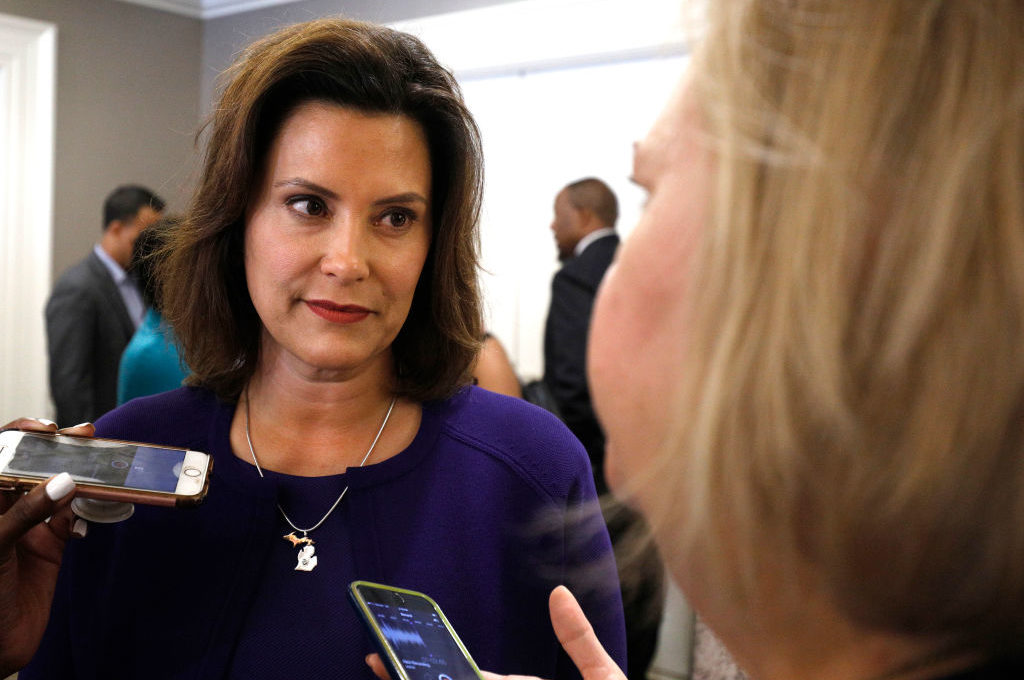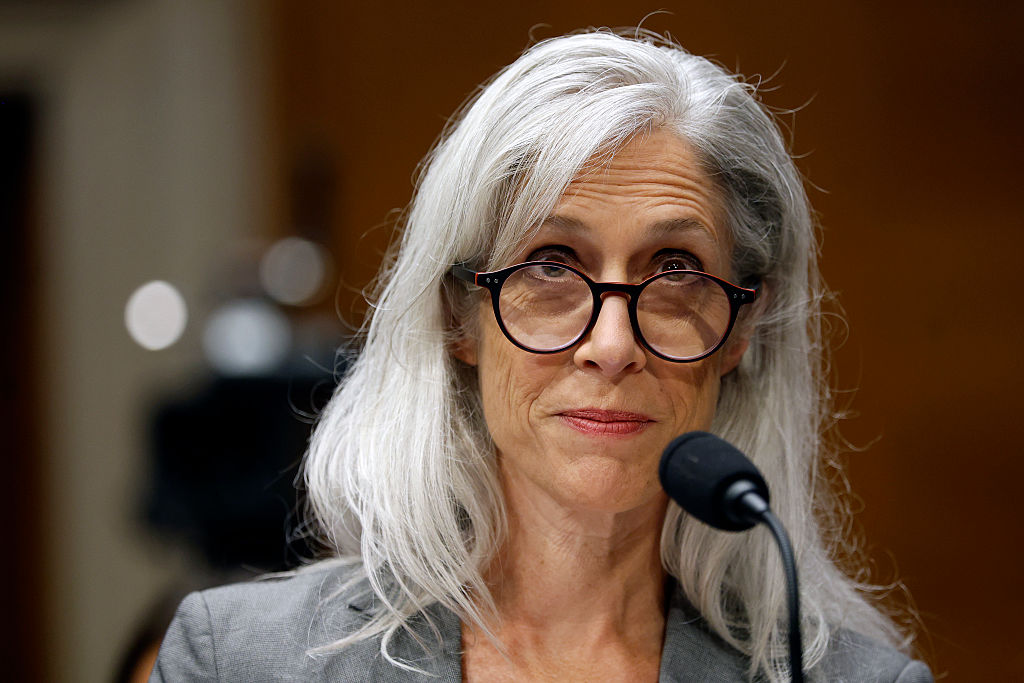Let’s face it: under the best of circumstances governing is a tricky and difficult task. This is particularly true in a democracy such as ours with its clashing interests, roiling ideological divisions, partisan passions, and a system of government that often places rank amateurs in charge of career civil servants. This is not a recipe for sound decision-making. Perhaps that explains why Gov. Gretchen Whitmer is mandating implicit bias training for all Michigan healthcare workers in the middle of a pandemic?
Even for experienced politicians genuinely motivated by the common good, 2020 has offered up daunting challenges. The arrival of COVID-19, the teetering instability of our economy, and a ratcheting up of racial divisions would cause a seasoned professional many a sleepless night. Put those trials to someone with no executive experience and it’s a virtual certainty that the person in question will make mistakes. But, as I will show, accusing public health workers of racism is not a mistake, it’s calumny.
The office requires judgment, sound decision-making, a balancing of claims and interests, an ability to see the big picture, and an ability to explain to the public what the options are and why specific decisions have been made. Our governor here in Michigan, Gretchen Whitmer, has largely failed at these tasks, and as a result Michigan has suffered. Granted, there was no perfect policy any governor could propose in the face of the coronavirus, but Whitmer didn’t even try; or, at least, she didn’t nod at leadership. Instead, she deferred always to ‘the experts’ and ‘the science’, those nameless, faceless entities that suffer no consequences for the decisions and gave her cover for the policies. You are blameless, we assume, if you simply do what ‘the experts’ and ‘the science’ demands.
I suppose it is too much to hope that our politicians receive some instruction in the philosophy of science, but at this point everyone should be sufficiently skeptical of ‘the experts’ that deferring to them can’t be used as an excuse for avoiding decision-making and its concomitant accountability. I don’t accuse our governor of bad faith; I simply accuse her of not doing her job, one that involves exercising judgment, not avoiding it.
The Great Lake State has experienced more than its share of COVID cases. Until recently we had one of the highest infection and death rates in the country. The nexus of the problem was largely confined to the southeast corner of the state, and primarily in communities with greater African American populations. This led in turn to a confluence of a global pandemic, racial politics, and a governor who can’t think sensibly about science, to a particularly bad policy outcome. More anon.
The Mitten has seen disparate virus-related results between its black and white populations. Blacks make up about 14 percent of the state’s population but have suffered 30 percent of our cases and 40 percent of our deaths. Disparities such as this are multicausal, and so different factors may be at play: population densities, modes of transportation, the fact that the Detroit airport was one of the last in the country to shut down travel from China, underlying health conditions, access to good testing and medical care, co-morbidities associated with poverty — we can think of many possibilities.
At least, we could under normal circumstances. In an age marked by an inability to think clearly about race the knee-jerk reaction is to treat all disparities as if they are evidence of racial discrimination. It’s possible that racial discrimination plays a role, even a large role, in some of these disparities. But it can’t be assumed. A sane system of judgement demands the demonstrable combination of intent and effect that typically identifies wrongdoing.
But the new racial cops are not interested in sanity. Focusing on effects might produce ample evidence of racism and on intents occasional evidence. Policing racist attitudes, however, no longer requires palpable evidence: it can be determined by ascribing to everyone ‘unconscious biases’, which is what Gov. Whitmer has done. We are no longer in the age of the thought police; we are now in the age of the unthought police. When an administrator announced to me a couple years ago that any faculty member involved in hiring would have to undergo ‘implicit bias training’ I demurred, pointing out that he was making all sorts of assumptions: 1) biases are inherently bad; 2) they can be measured; 3) that the measurers have no measurement biases; 4) that they necessarily lead to bad effects; 5) that among those effects are racial discrimination; and, 6) that racial discrimination in hiring has been a demonstrable problem on our campus. The policy, I argued, failed on every one of these prongs. The administrator assured me that the tests and training were ‘backed by good science’. I suggested that he might want to refamiliarize himself with the literature, that the tests had all sorts of problems of validity and reliability and no demonstrable connection to predicting discriminatory behavior. Those who created the test (who have subsequently backed off many of their claims) created — surprise! — a tool that guarantees demonstration of ‘biases’ (in part because human beings can’t operate without them) and thus insures a permanent labor market for the trainers.
The combination of a global pandemic, racial conflicts, and a governor who insists on deferring judgment to experts resulted in a particularly noxious state social policy: all health care professionals in the state must undergo implicit bias testing and training as a condition of their licensure. The governor, in consultation with woke academics simply concluded, without evidence, that the disparities in health outcomes relative to the virus have to be a result of the hidden racism of healthcare professionals. Denying this would undoubtedly be an example of white fragility.
[special_offer]
So while our governor lauded the ‘frontline heroes’ for the ‘sacrifices’ they have made in fighting the virus, she then turned around and sacrificed those workers on the altar of anti-racism. I don’t think she’s malicious; I think she’s witless. And nurses — God bless them — are genial, goodhearted people not likely to fight back; they’ll typically be willing to go along with whatever is required of them. That’s because they believe their calling is helping people regardless of race; and yet, the governor has by this policy accused them of violating this very principle without any evidence other than disproportionate outcomes — the least likely explanation for which is that doctors and nurses are racists. Of course she has tried to hide the insult under the anodyne language of ‘we can all do better’ and ‘we all have room to grow’, but the accusation has already been made.
Nor is it clear who has to pay for the testing and training. The governor’s order makes no reference. And so already taxed nurses may actually have to pay for the privilege of being sent to an ideological boot camp to address a problem no one has proven exists to accomplish a good no one can demonstrate has any relation to the expenditure. But you can bet that the people who administer the tests and training will get paid. Meanwhile, the healthcare professionals are suspect not because of any actions they have taken as individuals but as a result of their professional classification.
Whitmer will undoubtedly, by this policy, score points both with her base and the woke left, especially on college campuses. She’ll deflect criticism that she’s not sufficiently attentive to race issues. There’s a name, however, for someone who possesses tremendous power and then uses that power to enforce compliance by weaker people for no other reason than because she can: bully. For all the anti-bullying talk of the last 10 or so years, some of the loudest complainers have proven themselves remarkably adept at it. Such bullying will not stop — on college campuses, in hospitals, in places of business, and in the courts of politics — until simple, decent people stand up for themselves. The nurses of Michigan are not, to my knowledge, organized and actuated, and given the personal stakes for them they’ll likely comply with the requirement. I would love nothing more than for each and every one of them to say they will not return to work until the governor rescinds this insulting policy, which would take all of five minutes. The nurses would simultaneously win back their dignity and their self-respect. In the meantime, we desperately need politicians and other civic leaders to stand up on their behalf. The only way to fight bullies is to push back, at which point they usually back down. That’s because we’ve discovered the bully’s secret: she’s not as strong or as powerful as she thinks she is.

























